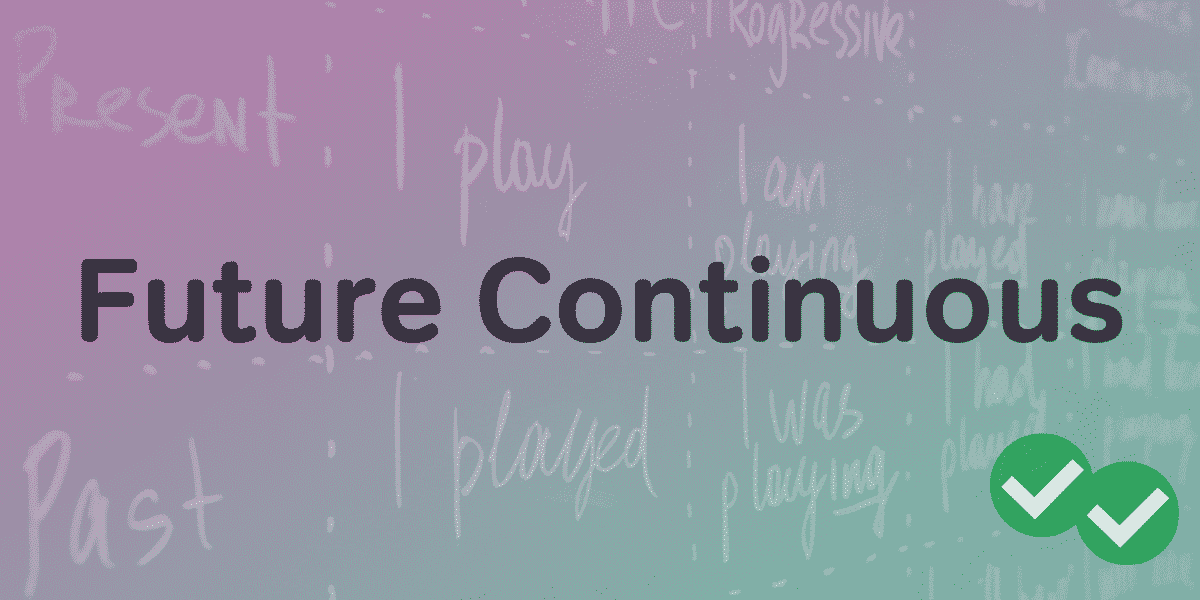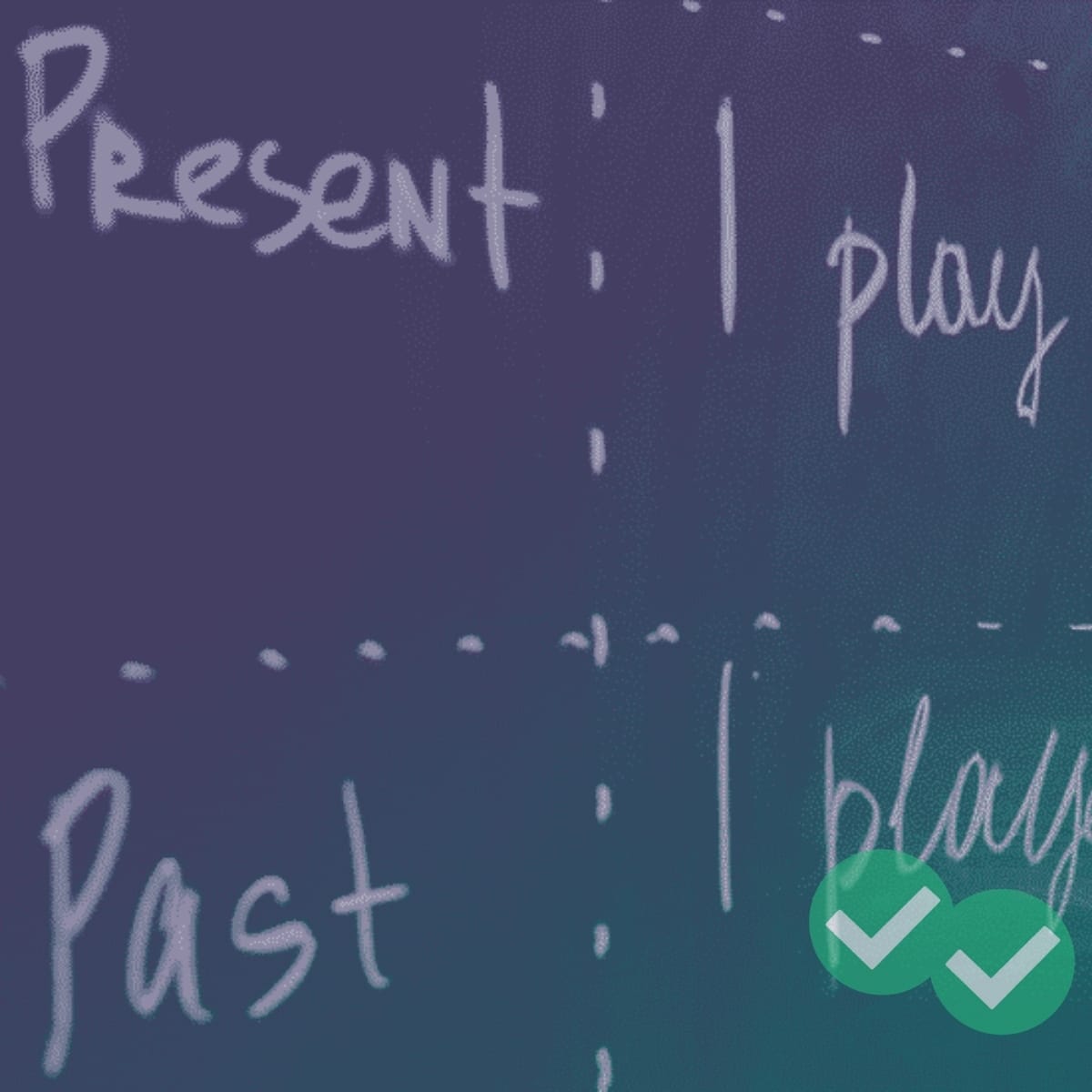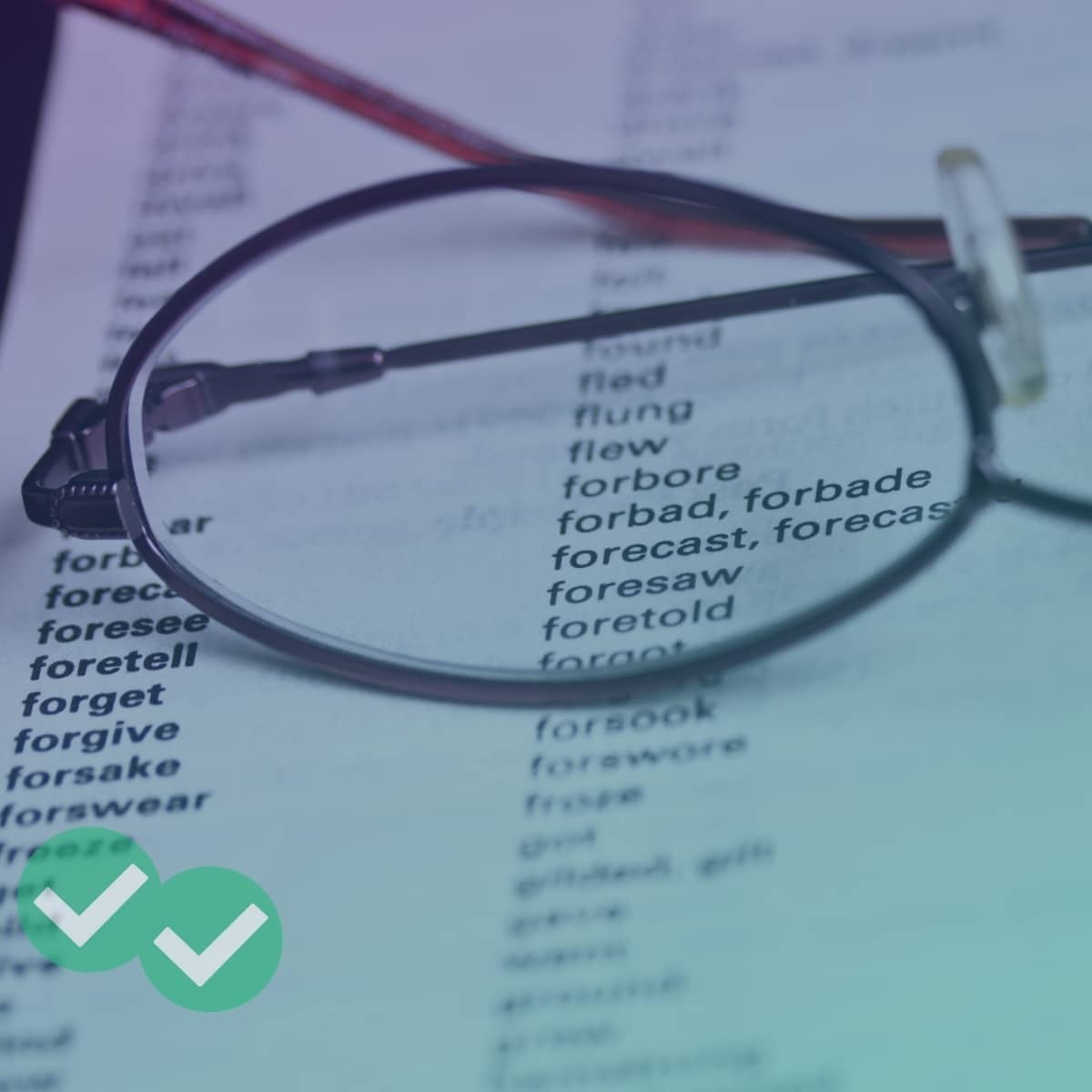
In this article we’ll break down the forms and application of the future continuous tense. Visit our main verb tenses page for resources on all verb tenses.
Forming the Past Continuous Tense (with Tables)
Quick Reference Table: The Past Continuous Tense in All Forms
KEY
Ving → Present Participle
| Forms | Verbs |
| + | Will + be + Ving
I will be writing tomorrow. |
| ? | Will + subject + be + Ving
Will you be writing tomorrow? |
| – | Will + not + be + Ving
I will not be writing tomorrow. |
The formula for the future continuous tense is: will + be + present participle.
Examples:
- What are you doing tomorrow? I will be debating in the competition.
- John will be debating against Sharon in the debate tomorrow.
- What are you doing tonight? I will be watching John and Sharon debate this evening.
**Going to be**
It is possible to use am/is/are + going to instead of will in the future continuous tense.
Example:
- I’m going to be watching the Super Bowl with my family this evening.
The form is correct—and you will definitely hear it. However, it is used more frequently in colloquial speech by saying ‘gonna be’ instead of ‘going to’.
Example:
- Sue: Hey, what are you up to tonight?Mary: I’m gonna be working at the restaurant all night.
The ‘Going to’ form isn’t used very often in formal writing, and ‘gonna be’ is not appropriate in a formal situation.
Making It Negative
To make the future continuous tense in negative form, use this formula: will + not + be + present participle.
Examples:
- I will not be calling her this evening.
- We will not be driving tomorrow.
- John will not be opening the restaurant in the morning.
Asking a Question
When asking a question in the future continuous tense, use the formula: will + subject + be + present participle.
Examples:
- Will they be waiting for us when we arrive?
- What will I be doing when I arrive?
- What will they be wearing to the wedding?
- Will it be snowing when we get there?
When To Use the Future Continuous Tense
The simple definition of the future continuous tense is that it indicates an action that will happen in the future and continue for a certain amount of time. However, there are many contexts of that indication that we will dissect in this section.
Use #1
When describing an action that will happen in the future, continue, and then be interrupted by another action.
Examples:
- Can you answer the door in 5 min.? I’ll be cooking when she arrives.
- I’ll be waiting here when you arrive.
- We will be staying at an AirBnb, so contact the owner of the property if anything happens.
Use #2
When using a continuous action in the future that will happen at a specific time.
Similar to Use #1 this puts the use of the future continuous as the interrupting action.
Examples:
- At Noon, I will be eating lunch with my daughter.
- Around 6, we’ll be watching a movie with our kids.
- Tomorrow morning, she’ll be writing some more chapters of her book.
Use #3
When describing actions happening at the same time in the future.
Examples:
- While they’re talking, I’ll be watching their dog.
- Tomorrow I will be helping my mother at her house, and he’ll be watching the kids at home.
This is a prime example of a possible colloquial use of ‘gonna be’ in this context.
What are you two doing tomorrow?
I’m going to be helping my mother at her house, and he’s going to be watching the kids.
Use #4
When describing an atmosphere that may or may not exist in the future.
Examples:
- When we get to the game, everyone will be shouting and yelling.
- I can see it now. Everyone will be laughing at me.
- I don’t want to go to the funeral. Everyone will be crying and telling old stories.
When Not To Use It
Don’t use the future continuous tense with stative/non-continuous verbs.
- I will be needing to go to the store later today because we’re almost out of bread. – Incorrect
- I need to go to the store later today because we’re almost out of bread. – Correct
That’s all you need to know for the future continuous tense!




Leave a Reply